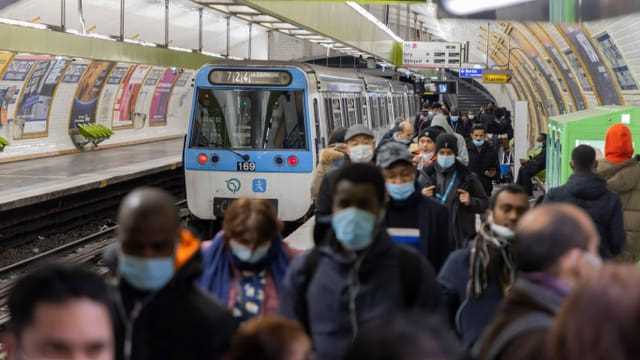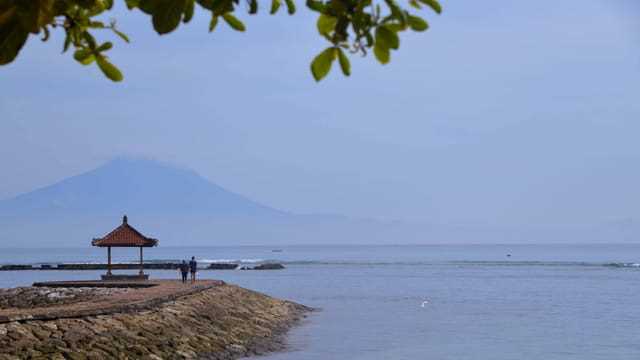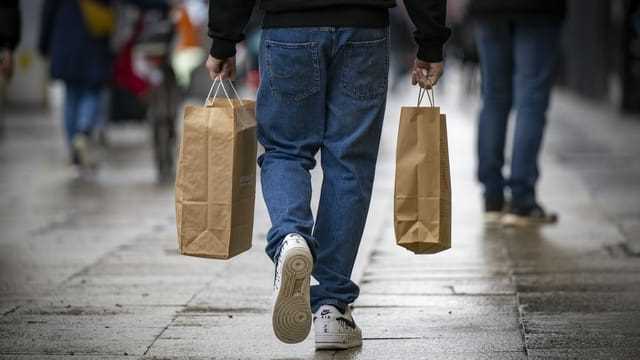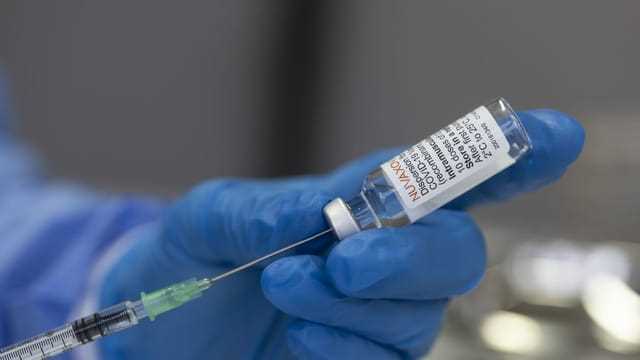Novavax expects full approval in 2022
US vaccine manufacturer Novavax expects full approval of its inactivated vaccine against Covid-19 later this year. “We expect to receive additional approvals where we have already submitted applications, including in the US. We will aim for full approval of our vaccine (…) in the second half of 2022,” says CEO Stanley Erck. The company expects total sales of four to five billion dollars in 2022.
Mallorca lifts almost all corona restrictions
Mallorca is lifting most of the corona restrictions that are still in force. The regional government announced on Monday that this should apply to all Balearic Islands as soon as it was published in the official gazette this Tuesday. Only the obligation to wear masks indoors, which continues to apply throughout Spain, and the smoking ban in the outdoor areas of restaurants will remain in place in Germans’ favorite foreign holiday destination. The corona numbers have been falling rapidly in Mallorca, the other Balearic Islands and throughout Spain for weeks.
EU development fund: Italy receives first billion tranche
Italy will receive the first tranche of the European Union’s multi-billion euro Corona recovery fund. The EU Commission gave the green light for the payment of 21 billion euros. Commission President Ursula von der Leyen said that the European member states now only have to officially agree to the payment from the “NextGenerationEU” plan.
Rome had applied for the first part of a total of 191 billion euros in Brussels after reforms had been launched as a prerequisite for the funds.
Italy is the EU country that can receive the largest share of the more than 800 billion euro package to rebuild the economy after the corona pandemic.
Price monitor: Corona tests still cost too much
The corona pandemic has also left its mark on the work of the Swiss price monitor: Stefan Meierhans dealt with the prices for corona tests and the costs of Covid 19 vaccinations, among other things, the price monitor writes in a statement on the 2021 annual report published today. To this end, he addressed formal recommendations to the Federal Council to reduce these prices and flat rates.
As a result, the prices for laboratory tests have been slightly reduced. But they are still too high. The flat rates for the administration of the vaccinations were therefore even increased instead of reduced.
You can read in our article what the price monitor is focusing on in the current year.
France: Mask requirement indoors is passé
As of today, masks are no longer needed indoors in France. However, a vaccination card is still required to visit bars, restaurants, cinemas, theaters and museums. This means that masks are now only compulsory on public transport. “It’s one less restriction, one more freedom,” said French government spokesman Gabriel Attal.
The French government is no longer looking so much at the incidence when it comes to easing the corona measures, but more at the utilization of the hospitals and intensive care units. The latter are only half full.

Legend:
In public transport – for example in the metro in Paris – a mask is still required.
imago images
This is the latest data from the Federal Office of Public Health
- The Federal Office of Public Health has lunch today 36,737 new cases reported who have tested positive for the coronavirus in the past few days.
- That’s it 7-day average at 14,856. These are 8 percent less than in the previous week. The 14-day incidence is current 2752.13.
- The BAG reports 182 new hospital admissionsthe 14-day average is included 83 hospital admissions per day. Get current 1398 people treated in a hospital for Covid-19. These are 15 percent less than in the previous week.
- Currently are 139 Covid-19 patients in intensive care. These are 16 percent less compared to the previous week. the intensive care beds in Swiss hospitals (including ad hoc beds) are currently closed 70 percent fully occupied. 16 percent of the intensive care beds are occupied by Covid 19 patients.
- The BAG reports 26 new deceased. The 7-day average is included 10 deceased.
- The positive rate in the 7-day average is currently 40.2 percent. This means that out of 100 tests, around 40 tests were positive on average. Compared to the previous week, the positive rate is over 3 percentage points gone up. The test volume in the 7-day average is included 42,453 tests per day and is thus over compared to the previous week 22 percent dropped.
- So far in Switzerland 15’631’791 vaccinations administered (including “booster” vaccinations). According to current calculations are average 4275 people vaccinated per day. These are 37.9 percent less than in the previous week. Currently have with it 69.0 percent of the population received at least two doses (“fully vaccinated”). 41.4 percent of the population have already received a third dose (“booster”).
Due to the pandemic, more stalking cases by neighbors in the city of Bern
Last year, 117 people contacted the stalking advice center of the city of Bern. That’s the same as last year, but fewer than before the pandemic. The reason for the decline is the corona-related restrictions on social life.
Due to the pandemic, the private and professional lives of many Bernese have shifted to their own four walls, the city of Bern said. For the stalking counseling department, this meant that those affected increasingly sought initial contact via e-mail and took advantage of online counseling. The home shift is also reflected in the stalking cases. Reports of neighborhood stalking have increased. They made up 16 percent of cases last year, up from 9 percent in 2020.
By far the most common – 44 percent of the time – the harasser was the former relationship partner. 85 percent of victims of stalking were women. The specialist department shows those affected how to behave and advises them on legal issues, writes the city of Bern.
In three out of four cases, the harassment did not constitute a criminal offense in its own right. In Switzerland, stalking can only be prosecuted if it involves threats, coercion or property damage.
No more quarantine for Bali visitors
On the popular Indonesian holiday island of Bali, travelers who have been vaccinated at least twice will be able to go on quarantine-free holidays for the first time from March 14th. Visitors would then only have to take a PCR test upon arrival and could move freely around the island if the result was negative, said pandemic officer Luhut Pandjaitan. Another PCR test is due on the third day. A booster vaccination is no longer necessary.
Currently, holiday guests still have to show a booster vaccination and three days in hotel quarantine.

Legend:
Bali is dependent on the important tourism industry, which has been almost completely on the ground since April 2020. In 2019, more than six million holidaymakers traveled to the island, which is known for its temples, rice fields and beaches.
imago images
Swiss economy is growing faster than expected
The Swiss economy returned to growth in 2021 after the corona-related slump in the previous year. According to preliminary calculations, the gross domestic product (GDP) rose by 3.7 percent, as reported by the State Secretariat for Economic Affairs (Seco). That is stronger than expected by the government and the central bank (SNB), which had expected growth of 3.3 and 3.5 percent respectively for the past year. In 2020, the economic output of the Alpine republic had shrunk by 2.4 percent.
According to the Seco, almost all sectors of the economy recovered in the previous year, albeit to different extents. The manufacturing industry and thus the export of goods grew strongly. Large parts of the service sector also recovered. In the service sectors particularly affected by the pandemic or the restrictions to contain it, such as gastronomy, the value added was still well below the pre-crisis levels, according to Seco.
A lockdown effect is clearly evident in retail
In January 2022, the Swiss retail trade turned over significantly more than in the corresponding month of the previous year. A year ago, the industry suffered from the measures taken to contain the pandemic.
Specifically, retail sales adjusted for sales and public holiday effects rose by a nominal 4.8 percent in the month under review, as reported by the Federal Statistical Office (BFS). Price-adjusted, i.e. in real terms, it was even slightly more at +5.1 percent.
As a reminder: In January a year ago, there was a partial lockdown. From the middle of the month, shops with goods for non-daily needs were no longer allowed to open.

Legend:
The lockdown effect is clearly evident within the various retail trade categories: the non-food sector in particular grew (+14%). The sale of food (-6.3%) and e-commerce (-8.6%), on the other hand, suffered.
key stone
South Korea relieves test centers
South Korea will lift Covid-19 testing requirements at a number of companies to ease the burden on testing centers. According to the authorities, the country is facing a wave of omicron infections – and accordingly needs test resources to combat new cases.
In recent weeks, South Korea has reported average daily per capita infection rates that surpass some of the peaks in hard-hit countries like the US and UK. The death rate in highly vaccinated South Korea, meanwhile, is a fraction of the rates seen in those countries. More than 86 percent of the country’s 52 million people are fully vaccinated, with more than 61 percent having received booster shots.
South Korea has 139,626 new coronavirus cases as of midnight Sunday.
Incidence in Germany continues to fall – almost 40 countries removed from the risk list
In Germany, the corona numbers continue to fall. The Robert Koch Institute (RKI) reported 62,349 positive tests within 24 hours on Monday. That’s 11,518 fewer cases than Monday a week ago, when 73,867 new infections were reported. The seven-day incidence falls from 1240.3 the previous day to 1238.2 now.
On Sunday, Germany removed almost 40 countries from the list of corona high-risk areas, including EU countries such as Italy, Poland and Belgium. Switzerland remains a high-risk country.
The most important thing of the weekend
Good morning, we welcome you to a new live ticker about the latest on the corona crisis. These are the most important messages of the last few hours:
The live ticker with the reports from the last week can be found here.
